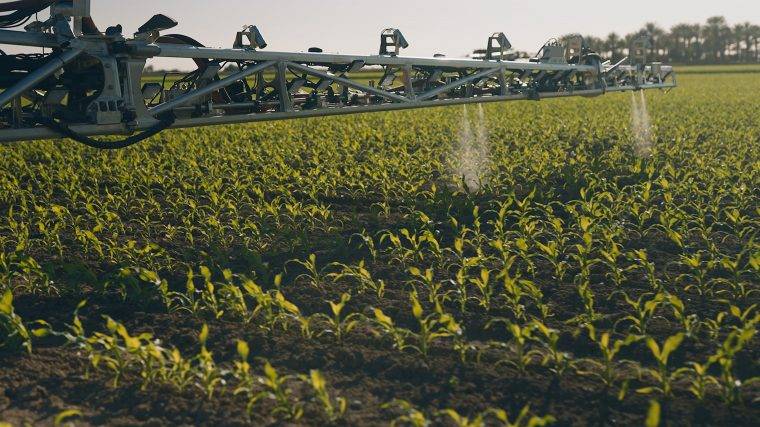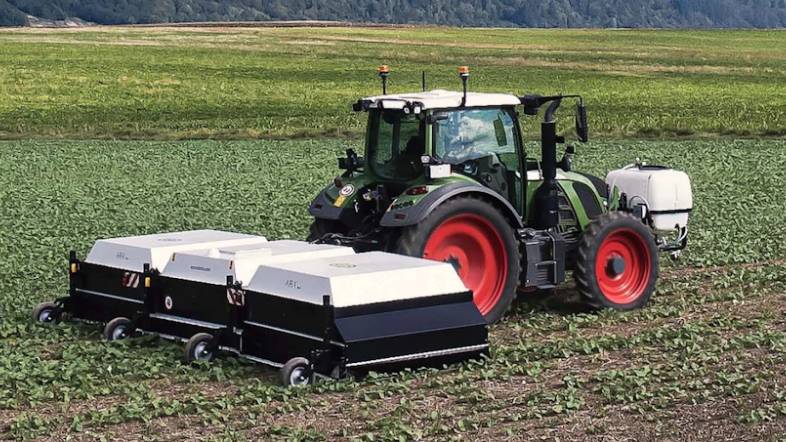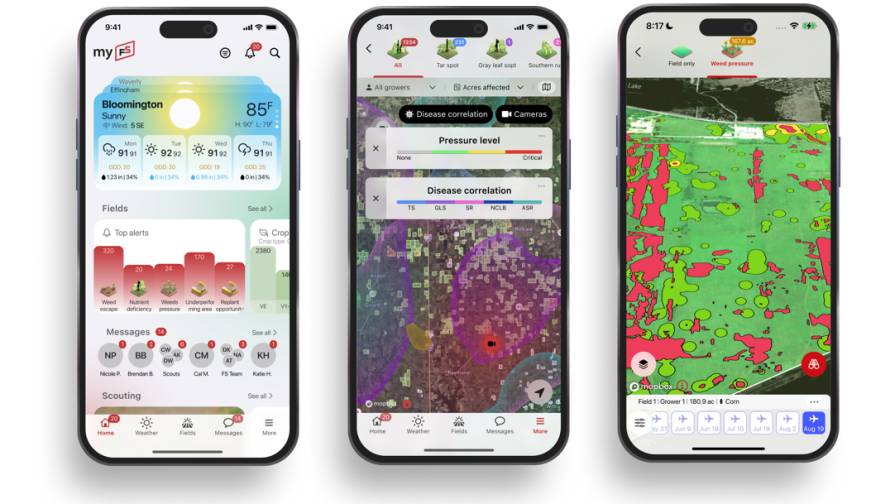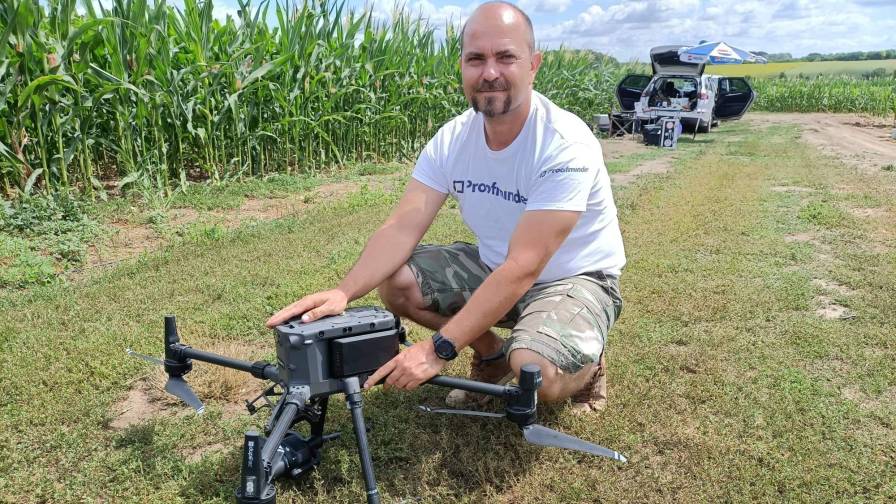Precision Agriculturists Will Need These 10 Skills in the 2020s
A relatively newer term is making the rounds these days – “upskilling.” What does it mean? It’s essentially that as digital technologies like automation and artificial intelligence creep into every corner of the economy, everyone in the workplace hierarchy must move it up a notch to continue adding value lest we all get steamrolled by technological progress.
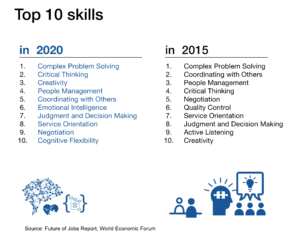
“Emotional Intelligence” and “Cognitive Flexibility” are new entries to the World Economic Forum’s Top 10 Skills list. (Click to enlarge.)
So is it enough for someone aspiring to a career-long engagement in precision agriculture to have a firm understanding of the twin paths of technology and agronomy?
Alas, no.
Certainly there will always be a call for what technologists like to call “domain knowledge” – that is, expertise gleaned from years of trial-and-error experience. But increasingly, real-world agricultural and horticulture production outcomes are being codified into data products and enhanced by artificial intelligence and machine learning, with experienced real-world agriculturists in effect acting as consultants and data suppliers. As I heard a data privacy expert tell an audience of Canadian greenhouse growers recently: “New A.I. products are coming to the greenhouse market in the next five to 10 years, and your data is being used to build them.”
MORE BY JAMES C. SULECKI
How Chateau Ste. Michelle Harvests Two Grades of Winegrapes — from One Vineyard
Microsoft Research’s Autonomous Greenhouse Is Early Stage But ‘Commerce Ready’
So, if much of our hard-won experience is being distilled into ones and zeros, how can we – all of us, lucky band of brothers and sisters who make our living through data insights and communication – stay one step ahead of change and continue to add value?
Here’s a pretty good laundry list. These are the top 10 job skills needed in 2020 – for agriculture and for the workplace at large – as adapted from the World Economic Forum.
- Complex problem solving. This nearly goes without saying in agriculture, where a diverse and ever-changing set of challenges and data points tend to defy pat year-over-year answers. But guess what? The problems are going to get even more complex. Think the match of agronomy and precision technology is complicated? Now overlay it with the data considerations of digital farming. It’ll be like thinking in three dimensions.
- Critical thinking. Critical thinking requires objective analysis and evaluation – essential as data-driven agriculture moves away from reliance on simple observation and “gut feel.” An ability to judge the veracity and relevance of torrents and data and match it with unerring instinct to set up the most favorable outcomes for growers will be – is now – highly prized.
- Creativity. The beauty of new technology is . . . it’s new, so generally there are no rulebooks. This allows for a lot of latitude as long as results are achieved. Eras of change reward those who are able to make sense and process out of chaos.
- People management. Our CropLife® brand, companion to PrecisionAg®, recently held the 25th annual meeting of our PACE Advisory Board where – as often happens – the conversation turned to the topic of agronomists and consultants as the grower’s “trusted advisors.” The sentiment of the group was that the next generation of growers – twenty-, thirty-, and even forty-somethings who are so-called “digital natives” – often prefers to interact as much via online tools as face to face and seem to have little patience for technologies, processes, and products that don’t get lift immediately. They will move on to something else quickly. Do you have the people skills to deal with the inevitable frustrations from this new and faster pace of action?
- Coordinating with others. With a nod to the politicians, it does indeed take a team these days. An ability to handle “handoffs” to other members of the team adroitly and diplomatically will be critical to anyone working in collaborative environments as we all do.
- Emotional intelligence. It’s often said that farming is as much an art as a science, and this is where emotional intelligence comes in. Can you discern when a farmer … Just. Doesn’t. Want. … to go by only the data, even if you’ve tried time and again to convince him or her that to do so would be the better route? Backing off and allowing the customer to arrive at his or her own conclusions can take a good deal of patience and emotional intelligence.
- Judgment and decision making. Conducting analyses and having detailed and wide-ranging discussions is one thing. Coming to a final conclusion and suggesting a prudent path forward is another. (So is taking ownership for a decision.)
- Service orientation. This nearly goes without saying. Raise your hand if you don’t have a customer who ultimately pays your salary. As the internet saying goes: “Go ahead. I’ll wait.”
- Negotiation. When there are no set rules, nearly everything can be a negotiation. How well can you sell your idea to others? Can you accept rejection? Can you accept compromise?
- Cognitive flexibility. How nimble can we stay intellectually? Can we shift modes rapidly without getting burned out? How well do we deal with change, and with ambiguity? Cognitive flexibility is an important quality to have in an era of data overload.
So that’s it. Knowledge of technology and agronomy are of course critical, but these days they often also are simply the baseline, the price of admission. Possess – or at least be heading down the path of possessing – most or all these skills, and we all can feel some assurance that our own jobs still will be around in 10 or 20 years.





